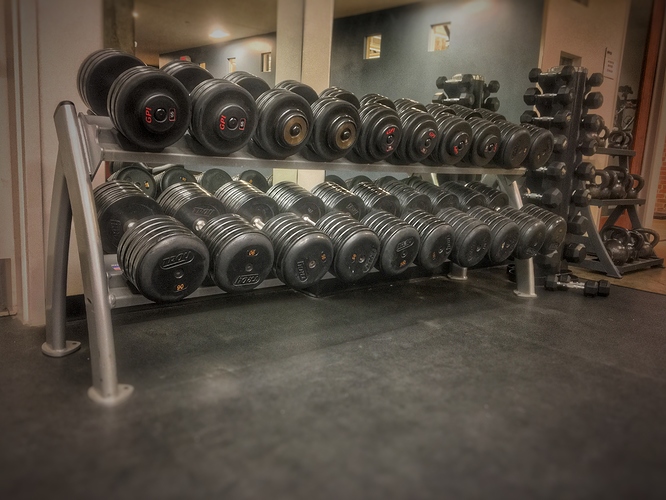Coach @AllanMisner I wish I had thought to ask you first. I have added your podcast to my listening queue.
Thanks to Drs Naiman and Berry, (see my post, below) I am rethinking my exercise regimen. Dr Naiman’s youtube video on exercise dramatizes that I’ve been exercising in a very light, if prolonged, state of minimal muscle stimulation and that I should push my weight workouts to exhaustion. That seems to make sense, enough, but I also rather enjoy my cardio days, if only because how they make me feel, and the “alone time” it provides.
It begs the question. Is cardio an efficient means of exercise in the pursuit of burning fat? Would a pure weight training regimen be the most optimal schedule? Do you see a role for cardio in relation to health, fat burning or other psychosomatic benefits?
Also, I felt the Drs’ response to my question about a body’s declining ability to perform muscular regeneration in an older person, such as my self, was met with mere social network cheerleading, and not a more qualified response. While I may be misinformed, my bias isn’t ex nihilo. For example, consider this pubmed article states; “It is well known that the physiological activities of both immune cells and muscle stem cells decline with advancing age, thereby blunting the capacity of skeletal muscle to regenerate. The age-related reduction in muscle repair efficiency contributes to the development of sarcopenia, one of the most important factors of disability in elderly people.”
This physiological condition has a word, sarcopenia. I find emoji-laced responses unsatisfying.
What has been your experience with those you train, who are over the age of 50, and sarcopenia?
In writing this up, I found this on PubMed, but I’ve come to see PubMed will run anything?
Continuing the discussion from What did you take a photo of on your walk today?:
A little backstory to today’s photo. Last week, Dr. Berry had posted:
While I am very much biased towards low-carb and keto, magical thinking makes me nervous. I’ve been long told that as I grow older, I shouldn’t expect to bodybuild.¹ Not that I want to, but a more time-efficient gym workout is, of course, a very attractive option.
So, I asked the good doctor:
He responded;
Le sigh.
Social network cheerleading puts me into full skeptic mode. As an aside, Dr. Berry’s cheerleading seems to be increasing, btw. I figured I’d get a “second opinion,” Dr. Naiman, naturally.
He responded:
More terse, but aligns with Dr. Berry, in a very rhetorically minimal way.
SO… This morning, I’ve pushed my weight routine to exhaustion. I am a gelatinous mass now. The sting shall come, I expect. We’ll see. I’m still in an “n=1” frame of mind on this.
¹ I’ve also been long told to avoid fats, yadda yadda yadda. I’ve been fed a pack of nonsense. I get that. I was skeptical when I started low-carb eating. Better to be doubtful in most things.

